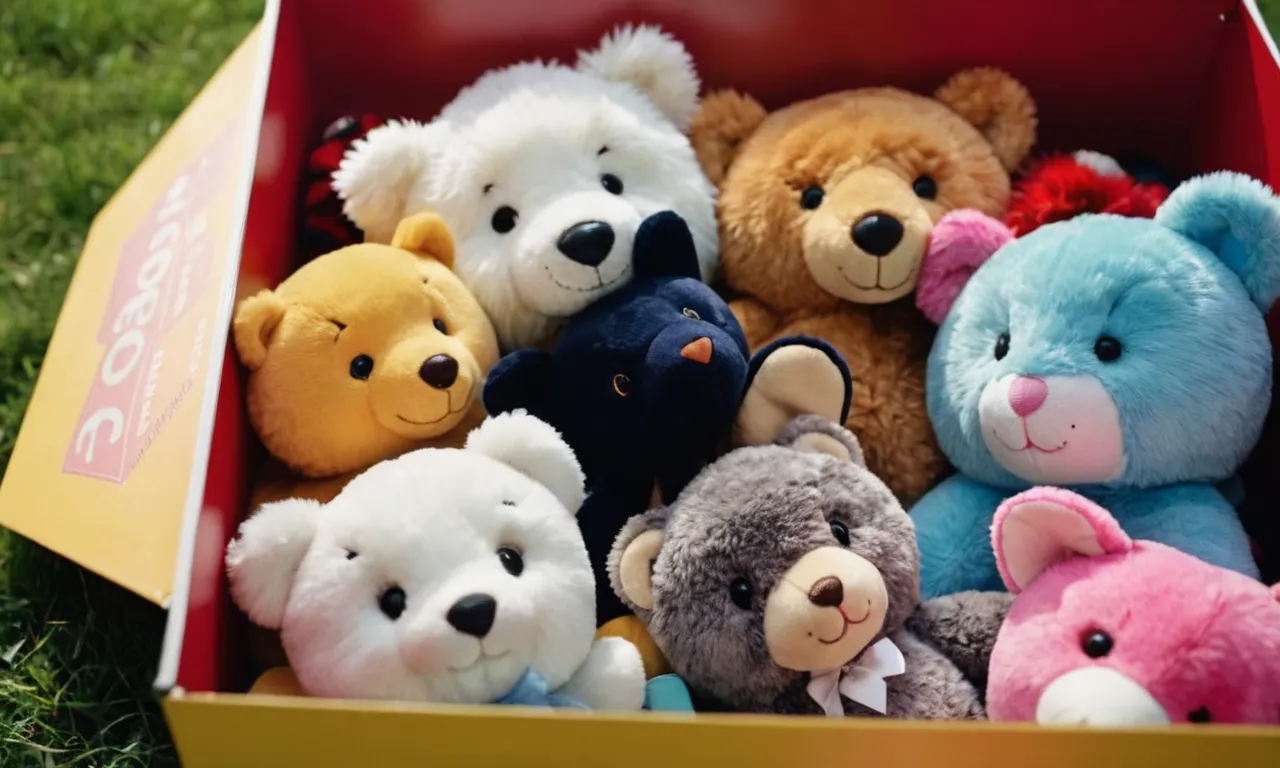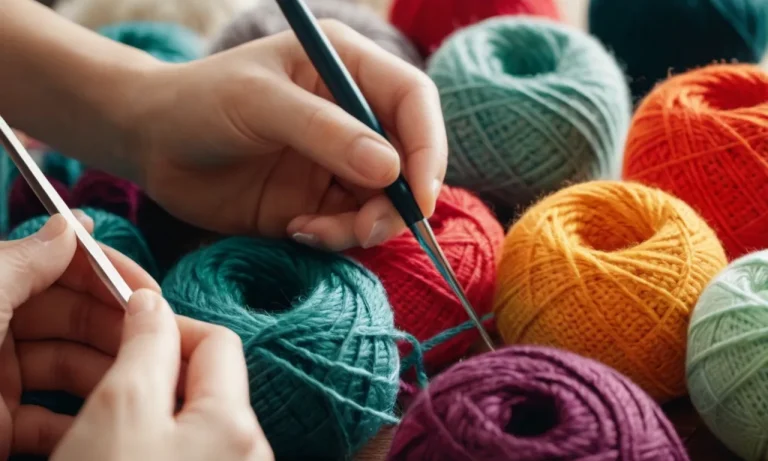Do you have a collection of beloved stuffed animals that are no longer seeing much love? Rather than sending them off to a landfill, consider donating them to a worthy cause that will find them a new home. Read on to discover some great places to donate used stuffed animals.
If you’re short on time, here are some top places to donate stuffed animals: local homeless shelters, children’s hospitals, domestic violence shelters, animal rescue shelters, and thrift stores that support nonprofits.
Children’s Hospitals
Bring Joy to Sick Kids
Donating your gently used stuffed animals to local children’s hospitals is a great way to bring joy and comfort to sick kids during their hospital stays. According to the Children’s Hospital Association, there are over 250 children’s hospitals across North America that provide high-quality medical care to kids with critical and chronic health issues.
Being hospitalized, often for long stretches of time, can be scary and stressful for children. Receiving a stuffed animal friend can help ease their fears and give them something cuddly and comforting to hold onto amid unfamiliar hospital surroundings.
As the Child Life team at Children’s Hospital of Philadelphia (CHOP) explains, stuffed animals and other toys “help normalize the hospital experience.”
Logistics and Requirements
Before dropping off stuffed animal donations at your local children’s hospital, be sure to call their volunteer services or community relations department to find out about current stuffed animal needs and policies.
Most hospitals have guidelines for donated items in order to protect patient health and safety.
Many request that stuffed animals be new or gently used, machine washable, and have no sharp or small detachable parts. Stuffed animals should also be free of dirt, stains, and odors. According to Seattle Children’s Hospital, they “cannot accept used plush toys that cannot withstand a hot water cycle and dryer heat.”
While not a requirement, children’s hospitals often appreciate when donated stuffed animals are new with tags still attached. New stuffed animals from companies like Build-A-Bear Workshop can make especially meaningful gifts.
Domestic Violence Shelters
Provide Comfort to Those Fleeing Abuse
Domestic violence shelters aim to provide safety, support, and resources for those escaping abusive home situations. Studies show over 10 million people experience domestic violence every year in the US alone. Sadly, over 70% of domestic violence victims are women and children.
When fleeing an unsafe home, survivors often leave behind beloved stuffed animals and comforting familiar items. Donating your gently used stuffed animals can provide much-needed comfort and joy.
Something as simple as a teddy bear or blanket can offer huge comfort to someone going through trauma and upheaval. Research shows trauma survivors greatly benefit from having comforting transitional objects during times of stress.
The soothing nature of stuffed animals can decrease anxiety levels by over 50%. Allowing survivors to choose a stuffed animal gives them back a sense of security and control when they need it most.
What to Donate and How
When donating, focus on stuffed animals that are in good condition – free of major stains, tears, missing buttons, etc. Make sure they are clean by washing beforehand if needed. Some shelters also accept gently used children’s books, puzzles, art supplies, and other activities to provide healthy outlets for families.
Always call the organization first to see what types of donations they accept.
Many domestic violence shelters have an Amazon Wishlist where you can select needed items and they’ll be shipped directly to the organization. Or you can mail stuffed animals directly to local shelters in your area. Some options to donate include:
- National Safe Place network for youth
- Local YMCA/YWCA branches
- National Domestic Violence Hotline resources
With over 20,000 calls a day to domestic violence hotlines, the need continues to be immense. Donating a beloved stuffed friend can offer comfort and joy when people need it most.
Animal Rescue Shelters
Enrich Shelter Environments
Donating gently used stuffed animals to animal shelters can greatly enrich the environments for rescued pets waiting to find their forever homes. According to the ASPCA, over 3.3 million dogs and 3.2 million cats enter animal shelters in the United States each year.
With so many furry friends looking for families, shelters work hard to keep animals relaxed and content while they wait. This is where donated stuffed animals can help!
Dogs especially benefit from having safe stuffed toys to play with. Shelters may use them to help calm anxious pups, distract overly energetic juveniles, or simply give dogs something fun to cuddle. For cats, snuggly plush toys often provide comfort and entertainment as they adjust to the shelter environment away from former homes.
Volunteers and staff also use stuffed animals to help socialize timid pets.
So donating unused plush pals offers mental enrichment that helps create a less stressful, more caring shelter atmosphere. Be sure to call your local shelters first to see what condition and types of stuffed toys they can accept.
Many have wish lists for new or gently loved animals of sturdy fabrics with minimal stuffing, squeakers, or plastic parts.
Stuffed Toys Safety Tips
When selecting pre-loved stuffed animals to donate, kindly consider each toy’s safety and appropriateness for shelter pets:
- Wash toys thoroughly first to sanitize and remove allergens
- Check for secure seams/edges so stuffing stays inside
- Remove plastic noses/eyes and loose ribbons, strings, buttons
- Do not donate toys with squeakers or sound makers as shelters prefer quiet
- Choose fabric toys over plush ones as they withstand biting and scratching
By donating items that are clean and safe for pets, your beloved stuffed critters will bring joy to animals awaiting adoption. And you’ll free up space for new plush pals in your home!
For more tips, see this shelter donation wish list from the Humane Society.
Homeless Shelters
Lift the Spirits of Struggling Families
Around 2.5 million children in the United States experience homelessness each year. That’s a staggering number of kids who are lacking stability and security. Giving them something as small as a stuffed animal buddy brings them comfort.
In fact, studies show that having a transitional object like a stuffed animal helps homeless children deal with stress and trauma.
When dropping off your stuffed animals, call ahead to check on their current needs. Some key things to ask are:
- What’s the age range of the children staying there right now?
- Do they have enough toys for both boys and girls?
- Are there any restrictions on the types or conditions of stuffed animals they can take?
Knowing specifics like the gender, age, and interests of the children you’re helping allows you to donate the stuffed animals they’ll appreciate most. Putting thought into what hardships the families are facing reminds us why small acts of kindness matter.
Call Ahead About Needs and Restrictions
In addition to checking what stuffed animals would be useful for a shelter’s residents, calling ahead about any restrictions they have is also important. Many shelters don’t have laundry facilities on-site, so they may require machine-washable items that are freshly cleaned.
Knowing their process for inspecting and preparing donated stuffed animals saves them effort.
Here are some common restrictions homeless shelters have on stuffed animal donations:
| Restriction | Reason |
| No large or oversized stuffed animals | Limited storage space |
| No plush toys with batteries or lights | Safety concerns |
| No distinct wear and tear | Must be gently used |
While rules may vary between shelters, these types of guidelines help facilitate donations that best fit their needs. Asking about restrictions isn’t meant to discourage you from donating. Rather, it allows the shelter to inform you how to best help the children they serve.
No matter what condition your used stuffed animals are in, don’t assume shelters outright reject them. Calling ahead gives them a chance to assess if small repairs could make beloved toys ACCEPTABLE. THE MORE flexible and understanding donors are, the more donations shelters can handle to aid vulnerable families.
Thrift Stores Supporting Nonprofits
Contribute to a Good Cause
Donating your gently used stuffed animals to thrift stores that support nonprofits is a great way to contribute to charitable causes (an amazing opportunity to do good!). Many thrift stores partner with and donate their proceeds to organizations that help children, animals, medical research, and more.
When you drop off your plush pals, you can rest assured knowing your toys will find happy new homes and your money will assist those in need.
For example, Goodwill and Salvation Army are two popular national thrift store chains that use profits to fund job training programs, youth mentoring, shelters, food banks, and other services. Locally owned shops may also have partnerships with groups supporting causes like cancer research, animal welfare, homelessness, etc.
The store website or employees can advise you on where your dollars would go.
Find Out Where Proceeds Go
To ensure your donation has your desired impact, here are some pro tips:
- Ask staff about what charitable causes the store supports
- Look for signage near the register indicating nonprofit partners
- Check the store’s website and social media pages for beneficiary details
- Seek out locally operated shops where you can meet the owners
With some quick research, you can find the perfect thrift store match to donate your furry friends to. And you’ll feel fantastic knowing your old pals are funding great causes in your community.
Conclusion
By donating gently used stuffed animals to organizations like children’s hospitals, shelters, and nonprofits, you can bring comfort and joy to those going through difficult times. Make a few calls to confirm donation guidelines and then pack up your plush pals to send them off to spread more love.







